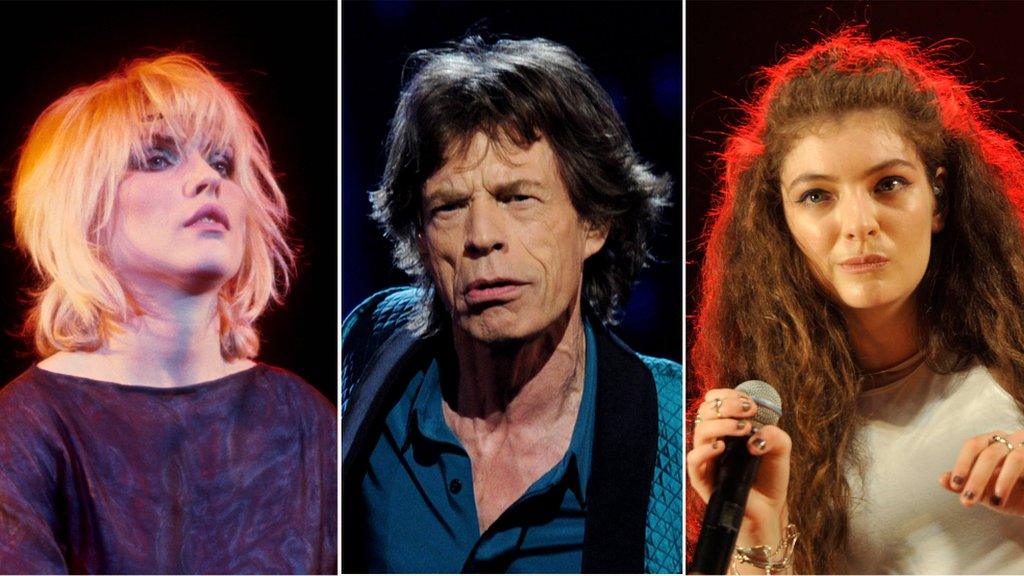Eminem and Vivek Ramaswamy revive battle between pop stars and politicians
- Published
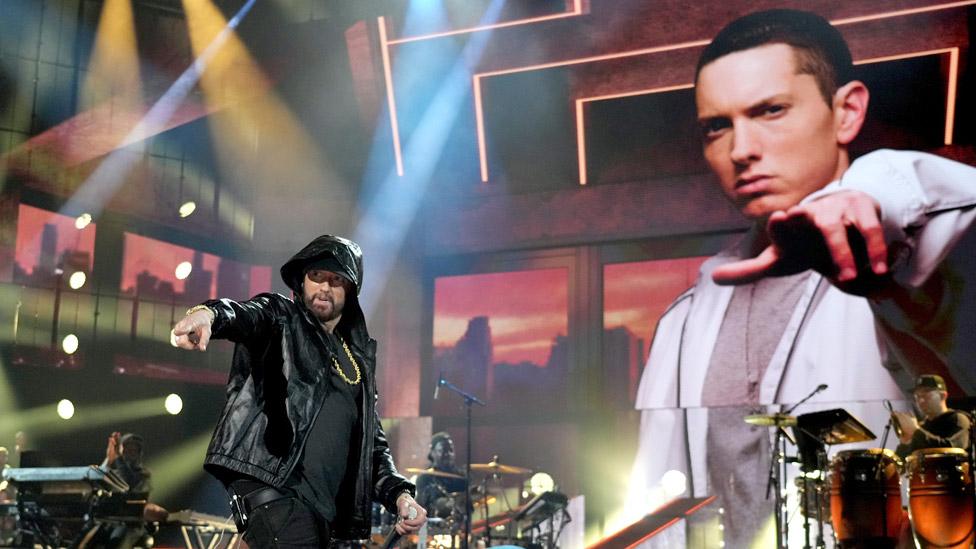
"This opportunity comes once in a lifetime, yo" - Eminem's motivational message is now a political rallying cry
Whenever election season comes around, it's a safe bet that a politician will try to glean credibility by using a pop song on the campaign trail - only for the star who recorded it to "ban" them from doing so.
The latest example came when biotech multi-millionaire and prospective US Republican candidate Vivek Ramaswamy launched into Eminem's Lose Yourself on stage at the Iowa State Fair earlier this month.
At least the 38-year-old can claim to be a genuine fan. He picked the 2002 hit as his "life's theme song" while studying at Harvard in 2006, and often belted it out at open mic nights and karaoke bars.
"I saw myself, honestly, making it big through American capitalism, and that's why the Eminem story spoke to me," Mr Ramaswamy recently told Politico, external.
"He's growing up in the trailers, with a single mom, and he wants to make it… I didn't grow up in a trailer, but I also didn't grow up in the same circumstances that most of my peers at Harvard did either. I aspired to achieve what many of their parents did. It kind of spoke to me, I would say."
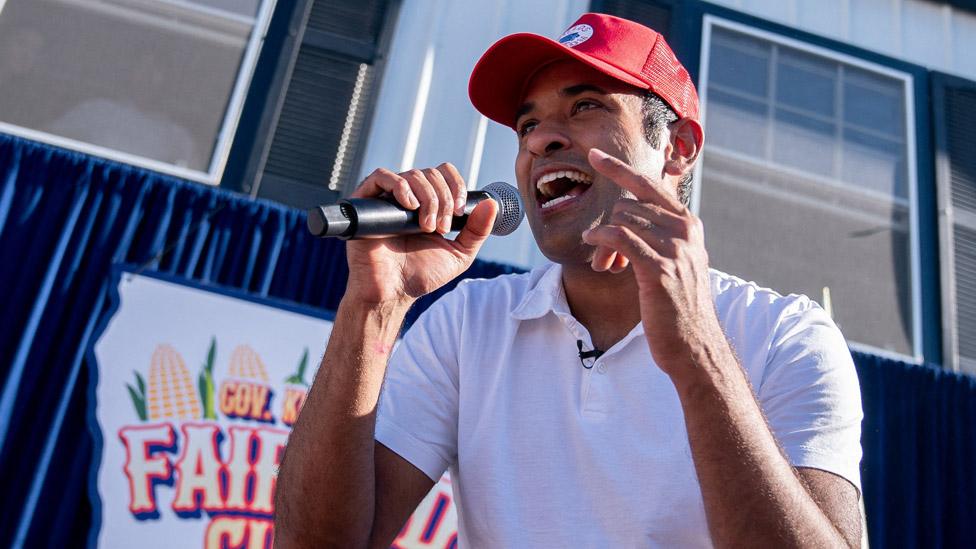
Vivek Ramaswamy is trying to stand out from his fellow Republican hopefuls
Soren Baker, author of The History of Gangster Rap, told the New York Times, external: "What Vivek is doing is trying to align himself with the struggle of overcoming adversity. From what I know of Vivek's policies, objectives and goals, they're not in alignment with Eminem at all."
The rapper himself seems to agree. He has now told Mr Ramaswamy, via performing rights organisation BMI, to stop using his music.
Still, Mr Ramaswamy may have already achieved his desired result. His recent performance managed to "separate him culturally from his generally more awkward and older competitors in the still-early race for the presidency", the New York Times wrote.
Other politicians who angered pop stars
Mr Ramaswamy has joined a long list of political figures who have incurred the wrath of rock, pop and rap stars. He's not even the first to get on the wrong side of Eminem.
In 2014, the rapper and his publishing company filed a copyright infringement suit against New Zealand's National Party after Prime Minister John Key used Lose Yourself in a campaign ad.
The issue goes back much further. Bruce Springsteen castigated President Ronald Reagan for planning to use Born in the USA for his 1984 election campaign.
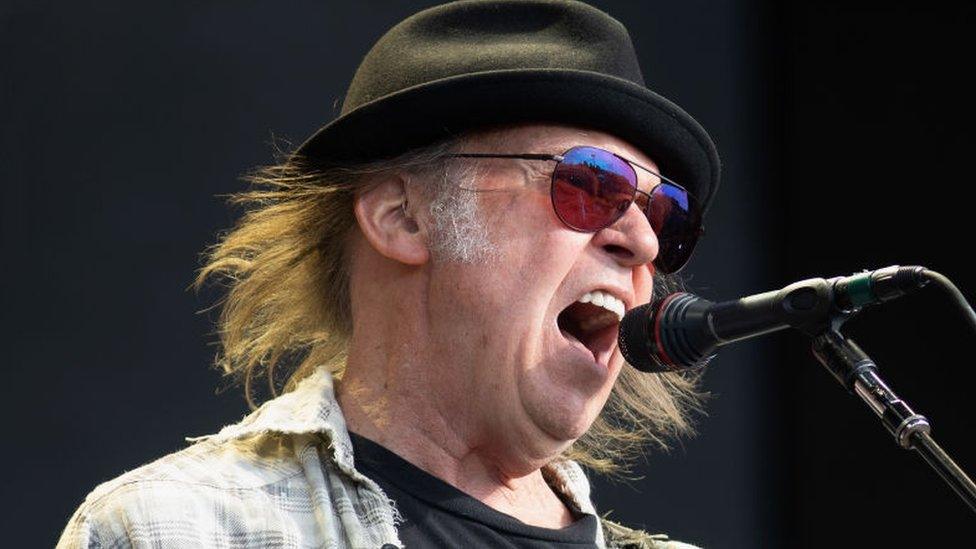
Neil Young distanced himself from what he called Donald Trump's "un-American campaign of ignorance and hate"
When Donald Trump first ran for president in 2016, Adele, Aerosmith, the Rolling Stones and REM were all unhappy at unwittingly providing his soundtrack.
"Do not use our music or my voice for your moronic charade of a campaign," REM singer Michael Stipe instructed.
In 2020, Neil Young sued Mr Trump's re-election campaign for using of Rockin' in the Free World and Devil's Sidewalk for what he called an "un-American campaign of ignorance and hate".
In January, Eminem's mate Dr Dre sent a cease-and-desist letter to US right-wing congresswoman Marjorie Taylor Greene, after she used one of his songs in a promotional video.
Watch: The prime minister walks on stage to the 1993 track Moving on Up
Examples of left-wing politicians angering musicians are rarer, perhaps because many artists lean that way and feel less need to publicly make the point that they haven't given approval.
In the UK, Fatboy Slim did furiously denounce Labour's use of Right Here, Right Now at their 2004 conference, the year after the Iraq War.
When Boris Johnson walked onto a Conservative Party conference stage to the sound of indie band Friendly Fires in 2021, they responded sarcastically: "If Boris Johnson needed something uplifting to walk on to, perhaps he should have used the sound of a busy food bank."
At the following year's conference, his successor as prime minister Liz Truss angered M People by walking out to their hit Moving On Up.
As it turned out, the 1993 hit was in the UK top 20 for longer than she lasted as PM.
Can politicians use pop songs?
Legally, US politicians don't always need direct permission from artists. Their campaigns can buy licensing packages from music rights organisations like BMI and ASCAP, which gives them legal access to more than 20 million songs, external for political rallies.
However, artists have the right to remove their music from that list. The Rolling Stones have done so, and Eminem has followed suit after objecting to Mr Ramaswamy's apparently impromptu rendition of Lose Yourself.
It seems that the rapper didn't know his music was covered by the blanket licence until then - an apparent problem with the US model, which resulted in artists like Adele, Neil Young, Phil Collins and the estates of Tom Petty and Prince objecting to Mr Trump's use of their music in 2016 and 2020 after the fact.
More than 50 musicians, including Sir Mick Jagger, Lorde, Sia and Blondie, signed an open letter complaining about that loophole in 2020.
"Being dragged unwillingly into politics in this way can compromise an artist's personal values while disappointing and alienating fans - with great moral and economic cost," they said.
In the UK, the situation is clearer. PPL - the body that licences the use of recorded music - requires political events like party conferences to "obtain permission from the relevant rights holder" before using a song.
Related topics
- Published29 August 2023
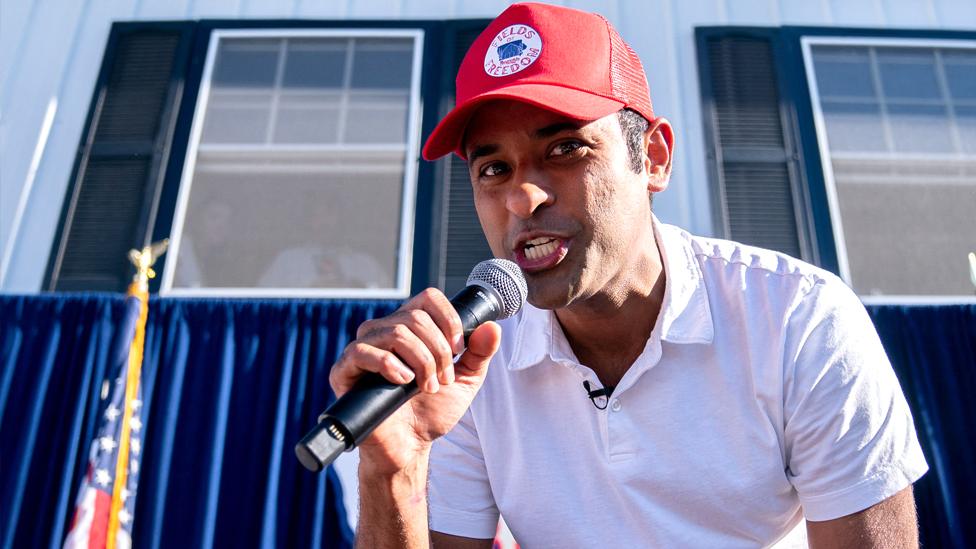
- Published5 October 2022
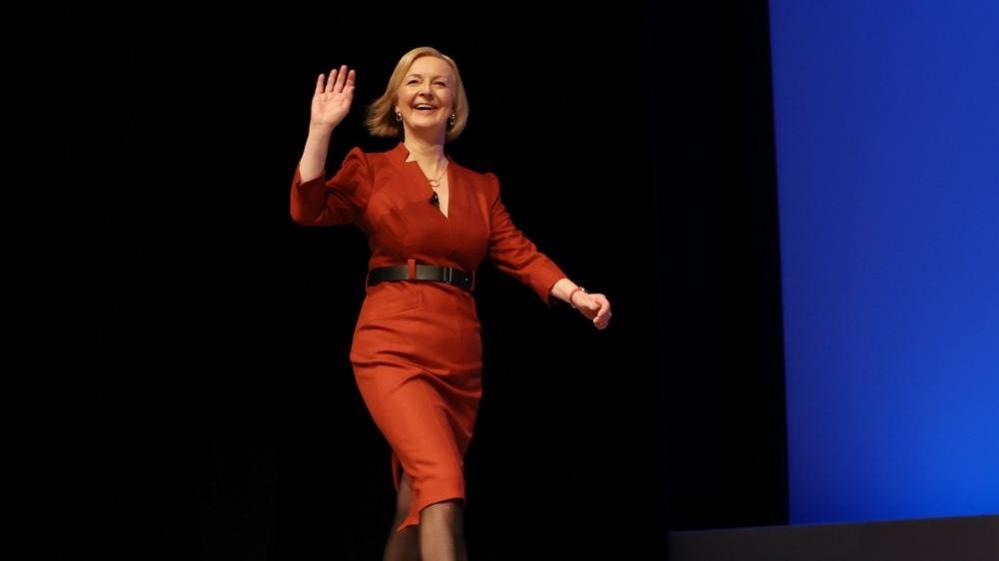
- Published28 July 2020
